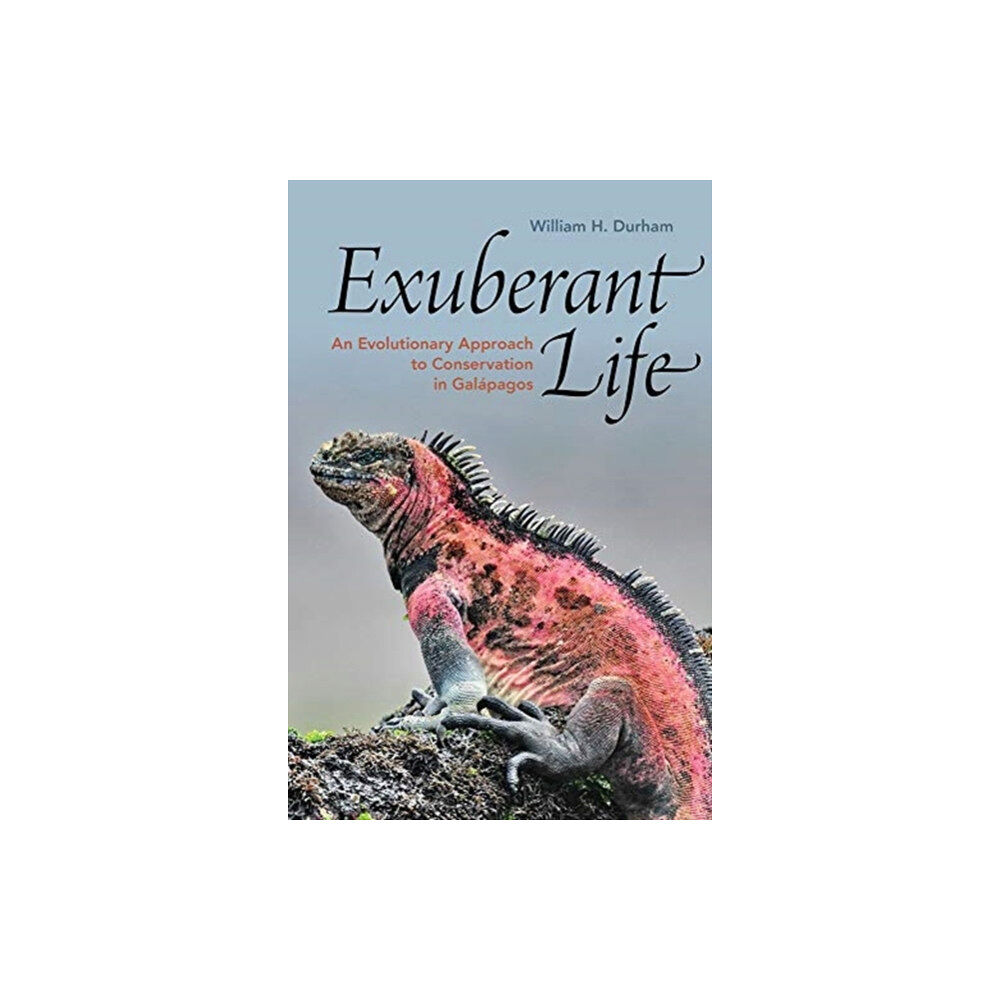- Hem
- Böcker
- Kurslitteratur
- Matematik & Naturvetenskap
- Exuberant Life (inbunden, eng)

Exuberant Life (inbunden, eng)
The terrestrial organisms of the Galápagos Islands live under conditions unlike those anywhere else. At the edge of a uniquely rich mid-ocea...
659 kr
705 kr
Slut i lager
- Fri frakt
Fri frakt över 299:-
Snabb leverans
Alltid låga priser
Produktbeskrivning
The terrestrial organisms of the Galápagos Islands live under conditions unlike those anywhere else. At the edge of a uniquely rich mid-ocean upwelling, their world is also free of mammalian predators and competitors, allowing them to live unbothered, exuberant lives. With its giant tortoises, marine iguanas, flightless cormorants, and forests of giant daisies, there''s no question that this is a magnificent place.
Long before people traversed the Earth, evolution endowed native species with adaptations to these special conditions and to perturbations like El Niño events and periodic droughts. As the islands have grown ever-more connected with humanity, those same adaptations now make its species vulnerable.
Today, the islands are best viewed as one big social-ecological system where the ability of each native organism to survive and reproduce is a product of human activity in addition to ecological circumstances. In this book, William H. Durham takes readers on a tour of Galápagos and the organisms that inhabit these isolated volcanic islands.
Exuberant Life offers a contemporary synthesis of what we know about the evolution of its curiously wonderful organisms, how they are faring in the tumultuous changing world around them, and how evolution can guide our efforts today for their conservation. The book highlights the ancestry of a dozen specific organisms in these islands, when and how they made it to the Galápagos, as well as how they have changed in the meantime.
Durham traces the strengths and weaknesses of each species, arguing that the mismatch between natural challenges of their habitats and the challenges humans have recently added is the main task facing conservation efforts today. Such analysis often provides surprises and suggestions not yet considered, like the potential benefits to joint conservation efforts between tree finches and tree daisies, or ways in which the peculiar evolved behaviors of Nazca and blue-footed boobies can be used to benefit both species today.
In each chapter, a social-ecological systems framework is used to highlight links between human impact, including climate change, and species status today, Historically, the Galápagos have played a central role in our understanding of evolution; what these islands now offer to teach us about conservation may well prove indispensable for the future of the planet.
Long before people traversed the Earth, evolution endowed native species with adaptations to these special conditions and to perturbations like El Niño events and periodic droughts. As the islands have grown ever-more connected with humanity, those same adaptations now make its species vulnerable.
Today, the islands are best viewed as one big social-ecological system where the ability of each native organism to survive and reproduce is a product of human activity in addition to ecological circumstances. In this book, William H. Durham takes readers on a tour of Galápagos and the organisms that inhabit these isolated volcanic islands.
Exuberant Life offers a contemporary synthesis of what we know about the evolution of its curiously wonderful organisms, how they are faring in the tumultuous changing world around them, and how evolution can guide our efforts today for their conservation. The book highlights the ancestry of a dozen specific organisms in these islands, when and how they made it to the Galápagos, as well as how they have changed in the meantime.
Durham traces the strengths and weaknesses of each species, arguing that the mismatch between natural challenges of their habitats and the challenges humans have recently added is the main task facing conservation efforts today. Such analysis often provides surprises and suggestions not yet considered, like the potential benefits to joint conservation efforts between tree finches and tree daisies, or ways in which the peculiar evolved behaviors of Nazca and blue-footed boobies can be used to benefit both species today.
In each chapter, a social-ecological systems framework is used to highlight links between human impact, including climate change, and species status today, Historically, the Galápagos have played a central role in our understanding of evolution; what these islands now offer to teach us about conservation may well prove indispensable for the future of the planet.
| Format | Inbunden |
| Omfång | 406 sidor |
| Språk | Engelska |
| Förlag | Oxford University Press Inc |
| Utgivningsdatum | 2021-09-30 |
| ISBN | 9780197531518 |
Specifikation
Böcker
- Inbunden, 406, Engelska, Oxford University Press Inc, 2021-09-30, 9780197531518
Leverans
Vi erbjuder flera smidiga leveransalternativ beroende på ditt postnummer, såsom Budbee Box, Early Bird, Instabox och DB Schenker. Vid köp över 299 kr är leveransen kostnadsfri, annars tillkommer en fraktavgift från 29 kr. Välj det alternativ som passar dig bäst för en bekväm leverans.
Betalning
Du kan betala tryggt och enkelt via Avarda med flera alternativ: Swish för snabb betalning, kortbetalning med VISA eller MasterCard, faktura med 30 dagars betalningstid, eller konto för flexibel delbetalning.
Specifikation
Det finns tyvärr inga specifikationer att visa för denna produkt.
